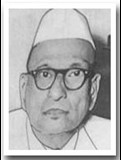Generalities
Oil of turpentine has a selective affinity for mucous membranes of KIDNEYS; bladder; respiration; bronchi; heart and blood. HAEMORRHAGES; passive; black, offensive, oozing from mucous membranes. Affections of kidneys, with rheumatism. Aching, soreness and stiffness of muscles. Purpura haemorrhagica. Pain; excites urination; along large nerves, with sensation of coldness in the nerves; or occasionally like hot water running through a tube. Burning, in various parts, tip of tongue; epigastrium, small of back; kidney, uterus etc. Exhausted; sensitive and tired. Disturbed sense of equilibrium. Ill effects of alcohol, falls, strains, tooth extraction. Even trifle bruises him.
Worse
Dampness. Cold. Night. Lying. Pressure.
Better
Motion. Stooping.
Mind
Difficult concentration. Intense irritability; children fly into temper; during dentition. Coma.
Head
As of a band around the head. Dull headache with colic.
Eyes
Blindness from alcohol. Opens eyes when swallowing; in coma. Eyes dark red; face red on affected side.
Ears
Own voice sounds unnatural. Sensation in ears as of striking of a clock. Loud talking is Very painful.
Nose
Passive epistaxis, in children. Discharge of serum without coryza.
Face
Pale; earthly; sunken. Hot flushes followed by sweat.
Mouth
Tongue; smooth; glossy; sore, red; burning in tip. Aphthae from mouth to anus. Breath, cold, foul.
Stomach
Nausea and vomiting; with intense burning. Burning in epigastric region. Nausea better loose stool. Aversion to meat.
Abdomen
Bruised soreness. Flatulence. Tympanitis. Ascites. Profuse mucous stools; watery, green, foetid. Bloody stools. Worms. Bleeding from ulcers in the intestine. Bowels were drawn towards spine. Diarrhoea, with tetanic spasms.
Urinary
Burning, drawing pain in region of kidney. Burning or pain along ureters. Strangury, with bloody urine. Urine; smoky; with coffee grounds; or thick, yellow, slimy, muddy sediment; odour of violets. Nephritis; after exanthemata; with violent bronchitis. Cystitis. Bleeding bladder. Pains alternate between navel and bladder, better walking. Urine scanty; suppressed; during dentition.
Female
Intense burning in uterine region; with metrorrhagia. Metritis. Uterine diseases after wearing pessaries.
Respiratory
Burning and tightness across chest. Bronchial asthma or catarrh; with profuse expectoration. Haemoptysis. Bloody expectoration. Bronchitis of children with drowsiness and retention of urine. Dyspnoea.
Heart
Pulse; rapid, small, thready; intermittent.
Back
Backache and soreness in kidney affections.
Extremities
Hands feel swollen. Cramps in knees. Intense pain along the larger nerves; worse damp weather. Stands with feet apart; has no power of balancing the body. Muscles, stiff. Walks bent like an old man. Brachial or sub-scapular neuralgia. As if pitch forward while walking.
Sleep
Drowsiness; with retaining of urine etc.
Fever
Heat under the skin. Cold sweat on legs.
Skin
Purpura haemorrhagica; advancing. General sensibility increased. Unbroken chilblains; with excessive itching and pulsations.
Related
Canth; Erig; Phosphorus

